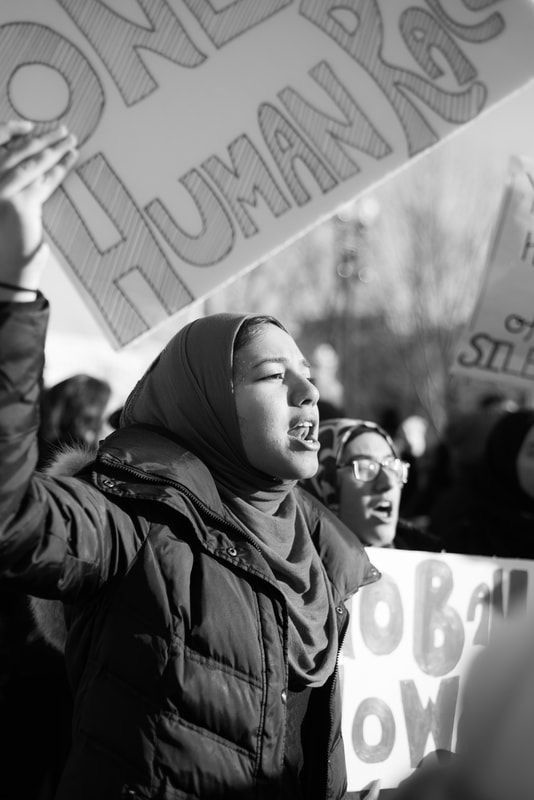Racism is a pervasive issue that affects societies worldwide, and Australia is no exception.
Within the multicultural fabric of Australia, Muslim communities play a significant role, yet they too face the challenges of racism, both from external sources and within their own ranks.
Islam, a religion that transcends race and ethnicity, offers clear guidance on the issue of racism, within and outside the Muslim community.
Islam’s Stance on Race and Racism
Islam unequivocally rejects racism and promotes equality among all human beings. Allah emphasises in the Quran the equality of all people regardless of race, colour, or ethnicity.
In Surah Al-Hujurat, Allah states:
“O mankind, indeed We have created you from male and female and made you peoples and tribes that you may know one another. Indeed, the most noble of you in the sight of Allah is the most righteous of you. Indeed, Allah is Knowing and Acquainted.” (Quran 49:13)
This verse highlights that all human beings are created equal, and the only criterion for superiority in Islam is righteousness and piety, not race or ethnicity. The Prophet Muhammad (peace be upon him) further reinforced this message in his Farewell Sermon, where he stated:
“All mankind is from Adam and Eve. An Arab has no superiority over a non-Arab, nor does a non-Arab have any superiority over an Arab; a white has no superiority over a black, nor does a black have any superiority over a white; none have superiority over another except by piety and good action.”
These teachings form the foundation of Islam’s stance on racism, advocating for a society where individuals are judged by their character and actions, not by their racial or ethnic background.
Racism Within Muslim Communities
Despite the clear teachings of Islam, racism can still manifest within Muslim communities. In Australia, this can take various forms, including cultural and ethnic prejudices between different Muslim groups.
For example, tensions may exist between Muslims of different ethnic or cultural backgrounds and can stem from deeply ingrained biases, historical conflicts, or the influence of wider societal prejudices.
Within some communities, there may be a tendency to favour certain ethnic groups over others, leading to discrimination in social interactions, marriage, and even religious leadership roles.
And the Australian Muslim community is one of the most ethnically diverse religious groups in the country. This community is composed of individuals from a wide array of ethnic backgrounds, reflecting the global nature of Islam.
The Australian Muslim community is made up of Lebanese, Turkish, South-Asian, Indonesian, Somali, Sudanese, Nigerian, Egyptian, Iraqi, Syrian, Jordanian, Bosnian, Malaysian communities, in addition to many who come from various backgrounds and convert to Islam.
The broad diversity enriches the community, but means some groups are exposed to internal racism, which is not necessarily unique to the Australian Muslim community.
It reflects broader issues of racism that exist within many societies. However, it stands in stark contrast to the principles of equality and brotherhood that Islam advocates. Addressing these issues requires both introspection and action within the community.
Combating Racism in Muslim Communities in Australia
In recent years, there has been a growing awareness of the need to address racism within Muslim communities in Australia. Various initiatives have been undertaken by community leaders, organisations, and activists to promote unity and inclusivity among Muslims of different ethnic backgrounds.
One key approach has been through education and raising awareness. Islamic centres, mosques, and community organisations have increasingly focused on delivering sermons, workshops, and educational programs that emphasise the Islamic teachings on equality and the prohibition of racism.
These initiatives aim to challenge and dismantle racist attitudes and behaviours within the community, encouraging Muslims to reflect on their own biases and work towards a more inclusive community.
They range from community involvement in national campaigns such as the Australian Human Rights Commission’s “Racism. It stops with me” campaign that is active across the country. Many events, iftars, youth programs or sports events have been organised by a wide variety of organisations to encourage Muslims from different backgrounds to engage with each other.
Intercultural and interfaith dialogue has also played a significant role in fostering understanding and cooperation between different Muslim ethnic groups. Events and programs that bring together Muslims from diverse backgrounds help to break down stereotypes and build stronger, more cohesive communities. Such efforts are particularly important in Australia’s multicultural context, where Muslims come from a wide array of ethnic and cultural backgrounds.
Additionally, Muslim organisations in Australia have been actively involved in broader anti-racism campaigns, working alongside other faith and community groups to combat racism in society at large.
By participating in these initiatives, Muslim communities not only address racism within their own ranks but also contribute to the fight against racism in the wider Australian society.


